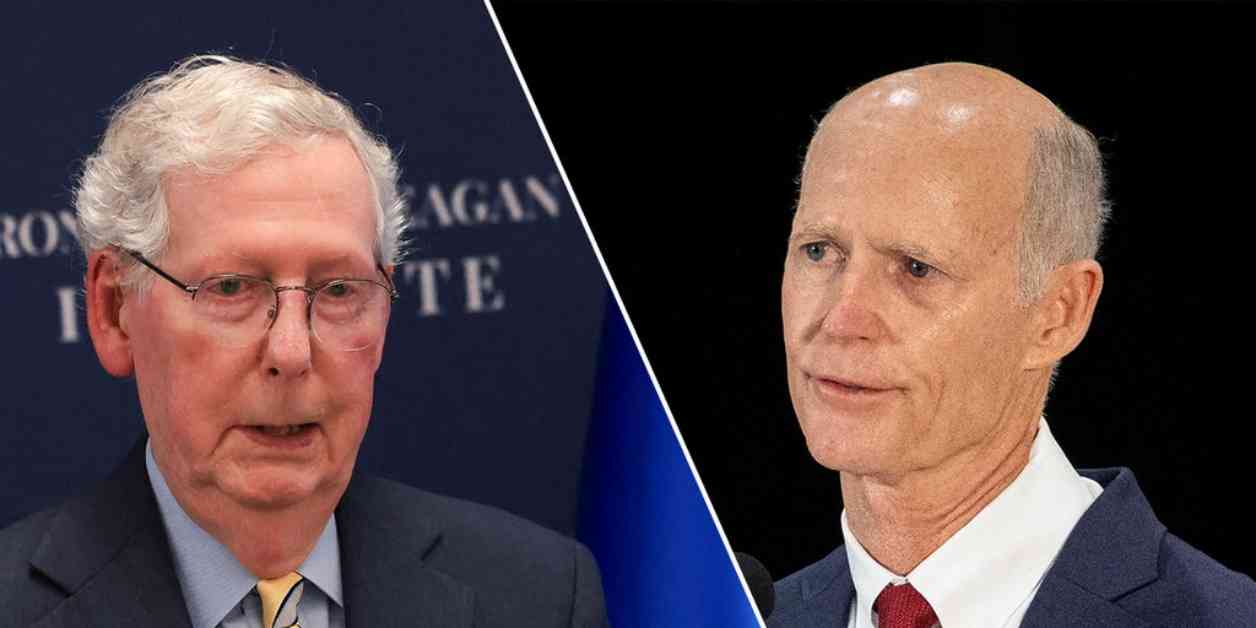Mitch McConnell, the Minority Leader of the Senate from Kentucky, was reportedly very angry with Rick Scott, the then-Chairman of the National Republican Senatorial Committee, for challenging his leadership in 2022. A new book titled “The Price of Power” revealed that McConnell felt Scott’s last-minute bid for leadership was a way to divert attention from his own poor performance in running the Senate GOP campaign arm.
According to the book, McConnell was upset because he believed that he had always been in control of the conversation during midterm elections, but Scott’s challenge changed that dynamic. McConnell’s former Chief of Staff, Josh Holmes, also confirmed that McConnell was not pleased with Scott’s actions.
McConnell criticized Scott’s handling of the Senate campaign committee, saying that his approach was used against Republican candidates by Democrats. Scott had released an 11-point plan called “to Rescue America” while leading the NRSC, which McConnell deemed as “laughably bad.” McConnell specifically disagreed with Scott’s proposals regarding income taxes and the sunset clause for federal legislation, fearing they could be used against Republicans.
Despite the challenge from Scott, McConnell won the vote to retain his leadership position. He reportedly took pleasure in the victory, viewing it as a personal triumph. The book also highlighted McConnell’s competitive nature, especially when facing opposition from within his own party.
In response to McConnell’s criticisms, Scott expressed shock at the attack from a fellow Republican senator. He emphasized his support for Donald Trump and his commitment to changing the way Washington operates. Scott and McConnell have fundamental disagreements, particularly regarding the direction of the Republican Party.
The book also mentioned McConnell’s past criticisms of former President Trump, which have caused tension between the two. McConnell clarified that despite any previous disagreements, they are all part of the same team now. McConnell announced earlier this year that he would not seek to lead the GOP conference again, paving the way for new leadership in the Senate.
Scott, Thune, and Cornyn are among the contenders to succeed McConnell as the leader of the Senate Republicans. The race for leadership in the Republican Party reflects the ongoing debate about the direction of the party and its future under new leadership. McConnell’s decision not to seek re-election as leader marks a significant shift within the party.
As the Republican Party navigates internal divisions and prepares for the upcoming elections, the leadership race will be closely watched. The dynamics between different factions within the party, including supporters of Trump and traditional Republicans, will shape the future direction of the GOP. The outcome of the leadership race will have implications for the party’s strategy and messaging in the lead-up to the next election cycle.


















